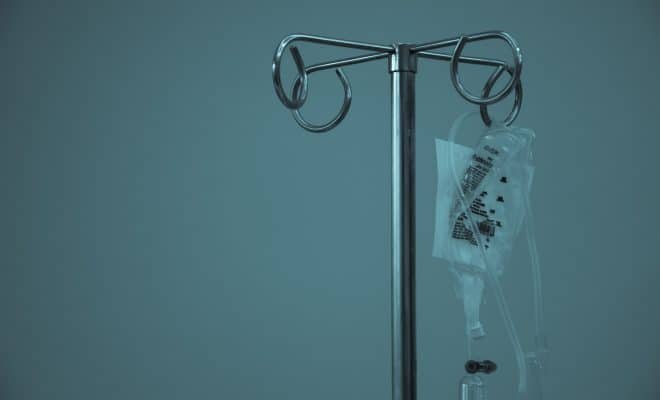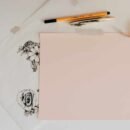Waking Up: Six Months Later – Part 3

~
Red curls bounce and reflect light on the television across the room. In the deep recesses of my visual cortex an impulse fires and a chain reaction of electrochemical events cascade into a single thought. Madison? My heart quickens. A lightness creeps into my chest, bubbling up as a burst of hysterical laughter. The sensation cavitates into sobs. Who is Madison? I tilt my head to stare at my patient ID bracelet, distorts through my tears. Why do they keep calling me Michael?
“Can you chart Michael for pseudobulbar affect again? You got it open anyway.” Beyond my periphery, they chatter.
“Should I give him something to calm down?” A sedate nurse suggests.
“His occupational therapy starts soon. Distracting him by wheeling him over – should be enough.” Another nurse responds without looking away from a screen.
The day room contains others like me – patients with exposed stitches or bandages on their heads and altered behavior. Meanwhile, the rehabilitation unit bustles with occupational and physical therapists day in, day out. The patients oscillate between vegetative exhaustion and moments of enlightenment akin to those experienced in the earliest years of life. Like preschool, rules regiment the seconds into colors and shapes.
The brain is a strange thing. I muse and grimace. Billions of neurons hold hands in a Kum-ba-yah network that goes quiet the moment something goes wrong, then suddenly no one has anything to say.
“How are you today, Michael?” The nurse from the station kneels and tries to make eye contact. My eyes tremble too much to fixate. I am too slow for his frustrations. Who is Michael? I look away. “Want to go for a walk?” I continue to ignore his attempts to connect with me. He lets out a sigh and walks around to the back of the wheelchair, unlocking the wheels, pushing me along the hall to my next appointment.
The door suggests it should be like any exam room. Flags to indicate room status swing from hinges at the top left corner. But, pushing the door open, there is a table, crayons, blocks, and other objects that look like children’s toys. I roll my eyes. And I am a child. Again. There’s a young doctor there with short blonde hair and a red beard. He towers over the wheelchair and takes the chair from the nurse.
Lowering himself to my level, he makes eye contact and crouches next to me at the table with the juvenile spread. “Hi Michael,” he begins, “we’re going to work on some puzzles today, okay?” He rolls me up to the table, and the chair jerks twice for each of the back wheels locking in place. Circling back around, he places a paper with a dashed outline and purple crayon in front of me. “Shapes first.”
I pick up the crayon with my left hand. “Michael, try with your right hand first. Your mother told us you were right-handed before.” The doctor moves it to my right hand.
I shake my head. I don’t remember. But it doesn’t feel natural. I pause. But I’m left-handed. Who is my mother? I move the crayon back to my left hand and copy the shape on the worksheet with ease.
“Michael, your injuries make it important that we focus on your right hand.” The doctor moves the crayon back again. I get frustrated and break the colored wax. The lights glare down overhead as a pain emerges in my chest, and the skin of my face gets hot. He hands me a green one. I trace the shape.
“Michael, what shape did you draw?” I look at the paper.
“Circle,” I whisper into vocal fry.
The doctor frowns and presents another piece of paper with another circle. I draw the circles and name them over and over. I start to shake as my heart races faster, pounding in my chest. By the last sheet of paper, the pounding consumes my attention. My hands no longer hold the crayon as I slump forward.
“One last time, Michael.” The doctor encourages me. “What is this shape?”
Something is different this time. I watch my mind grab the line of the circle at four points, pulling it taught into four corners. “Square.” I lift one edge of my mouth in a smile, raising my eyes in an attempt to see the doctor’s reaction.
“Very good.” The young doctor nods as I collapse into the wheelchair, and my eyes draw close. The creak of the door and rush of draft precede voices speaking from far away: the doctor and the male nurse.
“Finally, get it, huh?” The nurse’s voice warps through the darkness. “Took the freak long enough. His mother will be thrilled.”
Behind my eyelids, I see curly red hair. The smells of strawberries, sea salt, and cedar consume me as I remember.
Madison.








